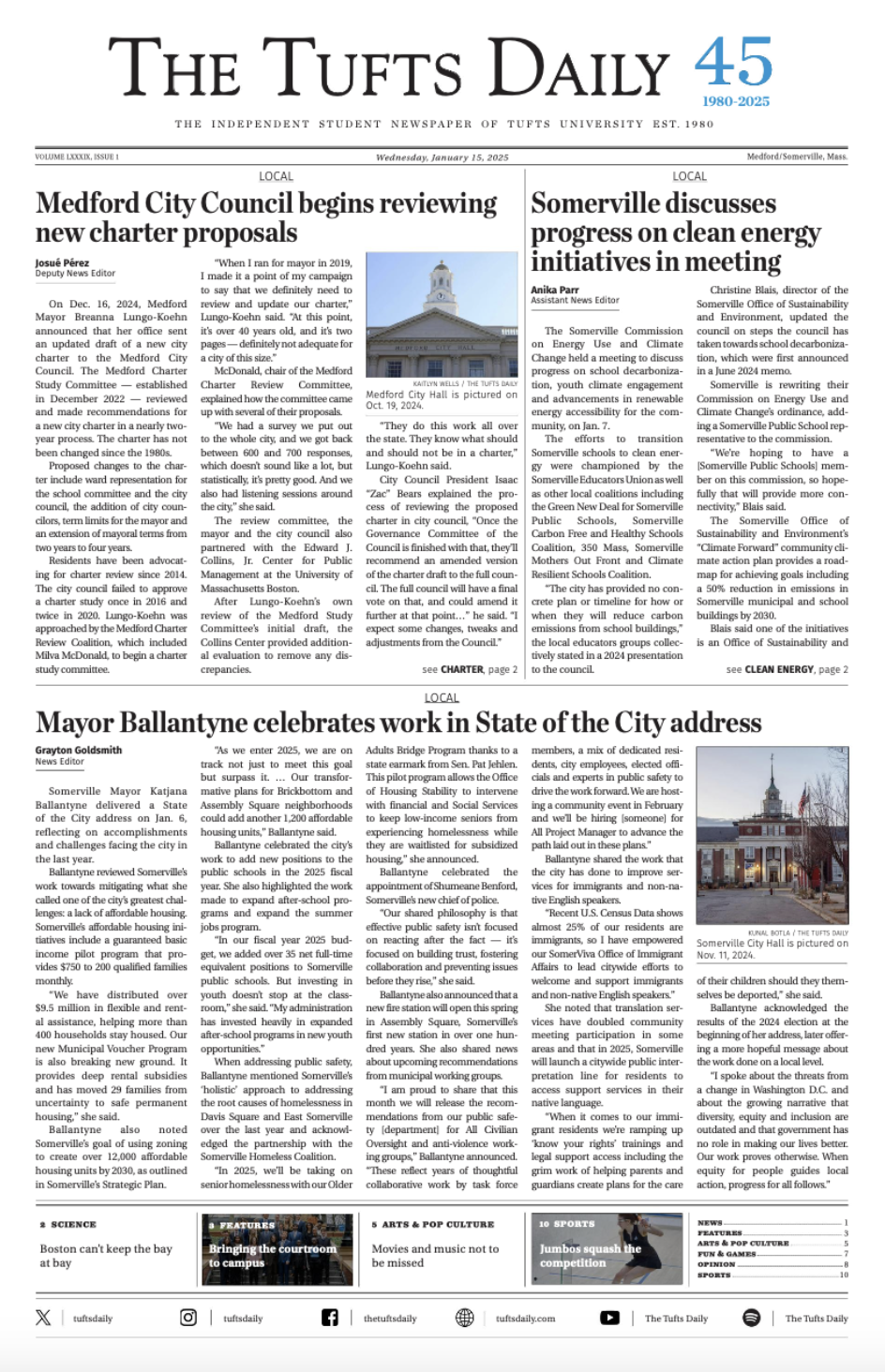University of Southern California professor Nayan Shah, the chair of that universitys Department of American Studies and Ethnicity, spoke yesterday on the significance of Asian-American history at a lecture last night celebrating the Asian American studies minor, saying that immigrants to the U.S. often have trouble finding a sense of belonging.
Shah highlighted the importance of history as a part of the Asian American Studies minors curriculum.
Im very interested in trying to understand, as a historian, western North America as [it connects] socially, geographically and politically to other reaches of the world, Shah said. Im interested in it as a site in the 19th and 20th century of volatility where diverse ethnic, national, gender and sexual identities are forged, where communities and practices collide and recreate society.
Shah explained that his research explores both mobility through different societies and the search for a sense of belonging to these societies.
Migration is cyclical and thus plays a role in defining groups of people, Shah said.
Mobility and migration are not about leaving one place and coming to another, Shah said. Theres a way in which we end up reinforcing immigration history by the idea that migration creates unanticipated breaks and detours in peoples lives and in space creates new ways of life.
Shah highlighted the role mobility played in Asian-American history they have immigrated to the United States. Mobility has allowed people of different ethnic backgrounds to mesh, he said.
The complexity of these transnational roots is part of a larger process of Mexican and Punjabi marriages, and also bridges other interracial marriages of African Americans, European immigrants [and] Native Americans that occurred [throughout California], Shah said. They [make up] this range of different ways in which people are converging and creating different possibilities for themselves.
After migrating to the U.S., Asian-Americans often struggle to find a sense of belonging in their new society, Shah said.
People from Asia and Africa are often [viewed differently] and recognized only as foreign or at best out of place, Shah said.
These people must create a sense of belonging in a different way, Shah said. His parents, for example, used the environment to connect with a community.
According to Shah, studying Asian-American history can play an important future role in how people think about creating societies.
Professor of English Lisa Lowe said Shahs unique research combines sexuality and health issues with those of race, citizenship and labor, Lowe said.
[Shah is] one of the most exciting, most accomplished scholars of 19th- and 20th-century Asian-American history, Lowe said. His outstanding research represents the fields interdisciplinary cutting edge.
Zoe Uvin, an attendee of the event, said she was fascinated by Shahs presentation and research and is excited for the new program.
I am so impressed that they got Professor Shah to speak here, Uvin, a sophomore, said. Its just a testament to how important this program is to the school. University of Southern California professor Nayan Shah, the chair of that universitys Department of American Studies and Ethnicity, spoke yesterday on the significance of Asian-American history at a lecture last night celebrating the Asian American studies minor, saying that immigrants to the U.S. often have trouble finding a sense of belonging.
The event, titled Pathways for Asian American Studies: Navigating Mobility, Belonging and Multiple Horizons, was sponsored by the American Studies program.
Shah highlighted the importance of history as a part of the Asian American Studies minors curriculum.
Im very interested in trying to understand, as a historian, western North America as [it connects] socially, geographically and politically to other reaches of the world, Shah said. Im interested in it as a site in the 19th and 20th century of volatility where diverse ethnic, national, gender and sexual identities are forged, where communities and practices collide and recreate society.
Shah explained that his research explores both mobility through different societies and the search for a sense of belonging to these societies.
Migration is cyclical and thus plays a role in defining groups of people, Shah said.
Mobility and migration are not about leaving one place and coming to another, Shah said. Theres a way in which we end up reinforcing immigration history by the idea that migration creates unanticipated breaks and detours in peoples lives and in space creates new ways of life.
Shah highlighted the role mobility played in Asian-American history they have immigrated to the United States. Mobility has allowed people of different ethnic backgrounds to mesh, he said.
The complexity of these transnational roots is part of a larger process of Mexican and Punjabi marriages, and also bridges other interracial marriages of African Americans, European immigrants [and] Native Americans that occurred [throughout California], Shah said. They [make up] this range of different ways in which people are converging and creating different possibilities for themselves.
After migrating to the U.S., Asian-Americans often struggle to find a sense of belonging in their new society, Shah said.
People from Asia and Africa are often [viewed differently] and recognized only as foreign or at best out of place, Shah said.
These people must create a sense of belonging in a different way, Shah said. His parents, for example, used the environment to connect with a community.
According to Shah, studying Asian-American history can play an important future role in how people think about creating societies.
Professor of English Lisa Lowe said Shahs unique research combines sexuality and health issues with those of race, citizenship and labor, Lowe said.
[Shah is] one of the most exciting, most accomplished scholars of 19th- and 20th-century Asian-American history, Lowe said. His outstanding research represents the fields interdisciplinary cutting edge.
Zoe Uvin, an attendee of the event, said she was fascinated by Shahs presentation and research and is excited for the new program.
I am so impressed that they got Professor Shah to speak here, Uvin, a sophomore, said. Its just a testament to how important this program is to the school.





